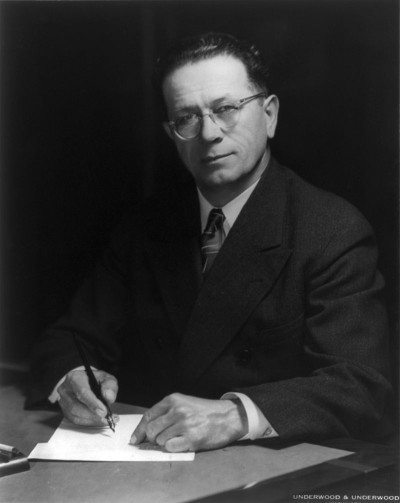Allen Ellender (Allen Joseph Ellender)

Allen Ellender was appointed as the city attorney of Houma from 1913 to 1915, and then district attorney of Terrebonne Parish from 1915 to 1916. He was a sergeant in the United States Army Artillery Corps during World War I, serving from 1917 to 1918. Allen Ellender was a delegate to the Louisiana constitutional convention in 1921. The constitution produced by that body was retired in 1974, two years after Ellender’s death. He served in the Louisiana House of Representatives from 1924 to 1936. He was floor leader from 1928–1932, when in 1929 he worked successfully against the impeachment forces, led by Ralph Norman Bauer and Cecil Morgan, that attempted to remove Governor Huey Long for a litany of abuses of power. Ellender was the House Speaker from 1932 to 1936, when he was elected to the US Senate. In 1937 he took his Senate seat, formerly held by the fallen Huey Long and slated for the Democratic nominee Oscar Kelly Allen, Sr., of Winnfield, the seat of the Long’s home parish of Winn. Allen had won the Democratic nomination by a plurality exceeding 200,000 votes, but he died shortly thereafter. His passing enabled Ellender’s election. The Democrats had so dominated state politics since the disfranchisement of most blacks at the turn of the century, that the primary was the decisive election for offices. Lorris M. Wimberly of Arcadia in Bienville Parish, meanwhile, succeeded Ellender as House Speaker. Wimberly was the choice of Governor Richard Webster Leche and thereafter Lieutenant Governor Earl Kemp Long, who succeeded Leche to the governorship. Allen Ellender was repeatedly re-elected to the Senate and served until his death in 1972. He gained seniority and great influence. He was the leading sponsor of the federal free lunch program, which was enacted in 1945 and continues; it was a welfare program that helped poor students.
Allen Ellender served as the powerful chairman of the Senate Agriculture Committee from 1951 to 1953 and 1955 to 1971, through which capacity he was a strong defender of sugar cane interests. He chaired the even more powerful Senate Appropriations Committee from 1971 until his death. Denoting his seniority as a Democrat in the Senate, Ellender was President pro tempore of the U.S. Senate from 1971–1972, an honorific position. Ellender was an opponent of Republican Senator Joseph McCarthy of Wisconsin, who exposed communist infiltration in the government during the 1950s. Allen Ellender strongly opposed the federal civil rights legislation of the 1960s, which included the Voting Rights Act of 1965 to enforce blacks’ constitutional rights in voting. Many, particularly in the Deep South, had been disfranchised since 1900. He did support some Louisiana state legislation sought by civil rights groups, such as repeal of the state poll tax (a disfranchisement mechanism). In 1972, the Democratic gubernatorial runner-up from December 1971, former state senator J. Bennett Johnston, Jr., of Shreveport challenged Ellender for renomination. Ellender was expected to defeat Johnston, but the veteran senator died in July during the primary campaign and left Johnston the de facto Democratic nominee. Nearly 10 percent of Democratic voters, however, still voted for the deceased Ellender.
Born
- September, 24, 1890
- USA
- Montegut, Terrebonne Parish, Louisiana
Died
- July, 27, 1972
- USA
- Bethesda Naval Hospital, Maryland



